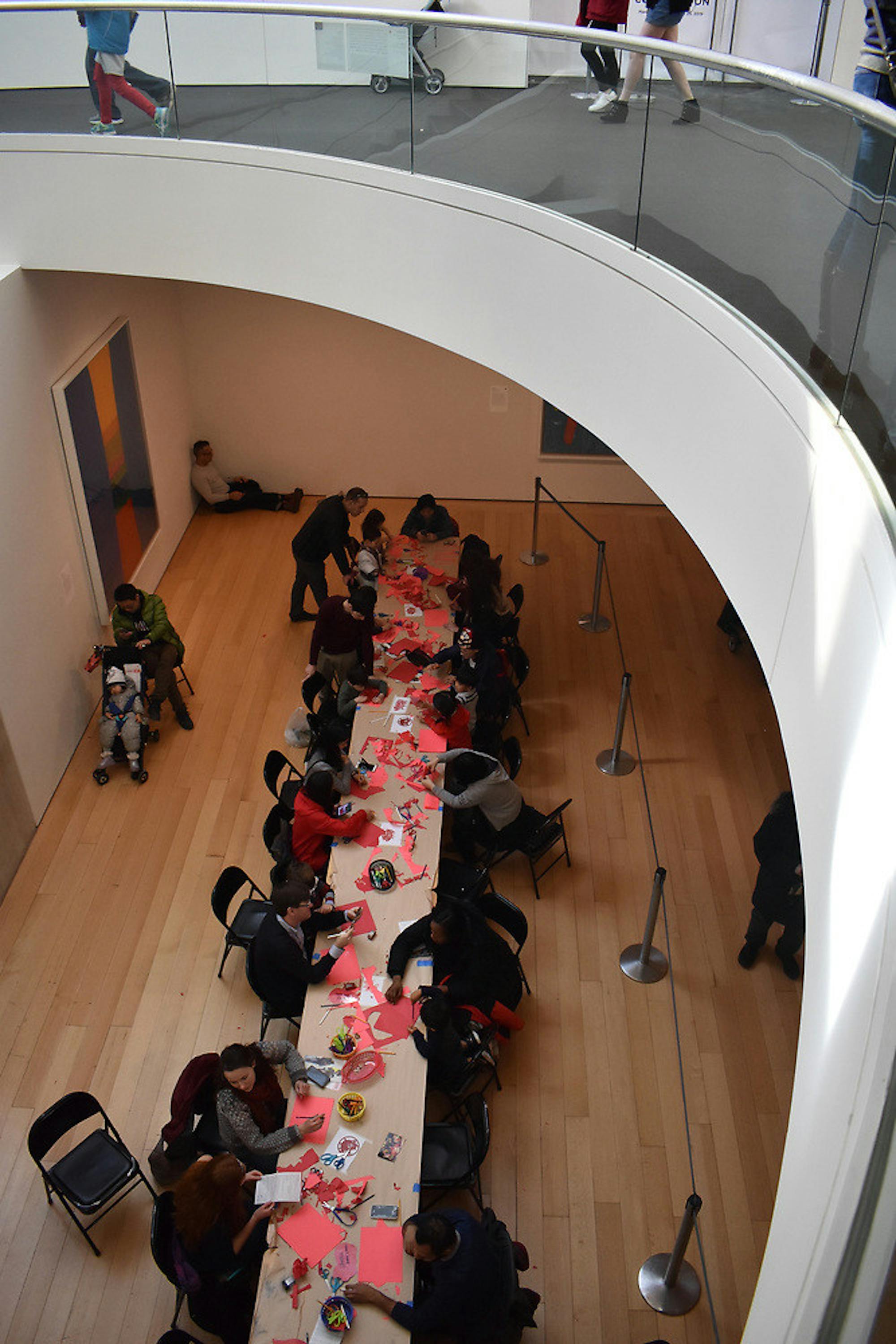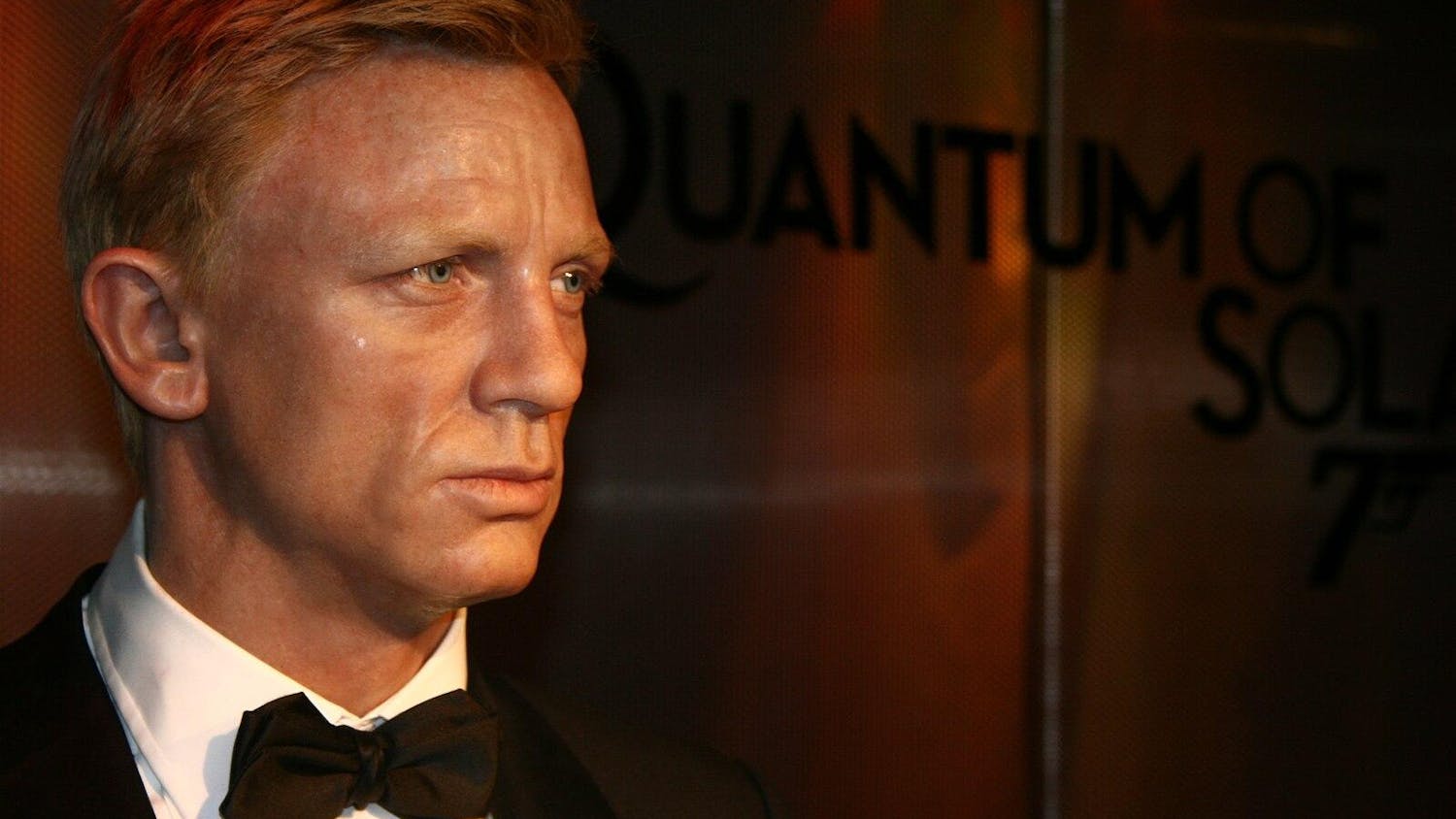In honor of the Year of the Pig, the Museum of Fine Arts (MFA) held Lunar New Year celebration last Saturday, Feb. 9. In addition to free admission, the museum offered events celebrating the new year and traditions from China, Korea and Vietnam.
The MFA itself hosted some of these talks and activities, such as Spotlight Talks, guided information sessions on the museum’s pieces in the relevant exhibitions. Community groups and other volunteers eager to celebrate with Boston families partnered with the museum to put on performances and demonstrations. These included a Lion Dance by the Gund Kwok Asian Women’s Lion & Dragon Dance Troupe, traditional performances by the Woorigarak Korean Cultural Art Center, a kung fu show by the Wah Lum Kung Fu & Tai Chi Academy and a martial arts demonstration by the Vietnamese-American Community of Massachusetts.
Dr. Xingcai Zhang, president of the World Tea Organization and postdoctoral researcher at MIT, held demonstrations of a traditional Chinese tea ceremony while explaining the history and importance of tea both in history and in current research. Having been born in the province of Fujian, the birthplace of many popular teas, he is well-steeped in what he calls "tea culture."
“I believe it’s meaningful to let people know about tea culture,” he said when asked why he finds sharing demonstrations of the tea ceremony important. “Basically, I say that tea culture is healthy, harmony, pure, nature … To express love through a cup of tea. That’s what I want to do.”
He is not the only participant who finds events like the MFA’s Lunar New Year celebration a useful avenue in teaching others about culture. For as long as the event has been running, The Korean Cultural Society has been holding demonstrations of sebae, a traditional bowing ritual.
“Primarily we wanted to promote Korean culture, and the MFA found the avenue to promote not only Korean but the other Asian cultures,” said Byung Kim, president of the society. “It is critical that the MFA recognize Asian culture.”
The efforts of the MFA and its partners certainly seem to have succeeded. The popularity of the event was obvious from the sheer number of attendees. At opening time, the admission line trailed out the doors to the sidewalk. Shows that required tickets sold out hours before showtime. The venue quickly ran out of seats, and audience members resorted to sitting or standing around the performance area.
Something else that stood out was the presence of children and families. Many of the attendees were families spanning generations, and there was plenty of child-focused programming, such as making origami lanterns and paper pigs. Toddlers sat with their grandparents to watch performances. Within said performances, many of the dancers and demonstrators were children themselves.
With such demand and interest, one day may not be enough to keep up. Kim suggested that the Museum of Fine Arts hold another event in May commemorating Asian American and Pacific Islander Heritage Month.
“This is a one-day event, and I think as much as they can help promote Asian cultures, they can have a long term sustained period — for maybe a week, or a few days, to promote Asian culture," he said.
Overall, the Lunar New Year event was a rousing success, pulling in crowds to appreciate not only the museum’s unique art exhibitions, but also traditional ceremonies and other cultures. The only downside was the sheer volume of people making it difficult to see the events themselves. Perhaps the museum will consider the suggestion of an additional celebration of Asian culture — there is certainly an audience for it.
MFA commemorates Lunar New Year with festive celebration

Museum visitors make paper lanterns at the Museum of Fine Arts' Lunar New Year Celebration on Feb. 9.





